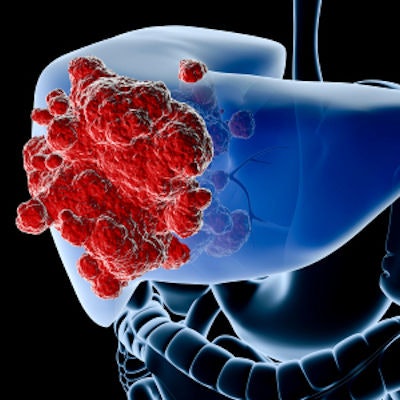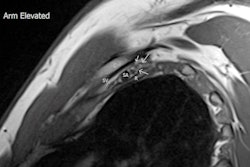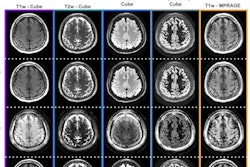
CHICAGO - MRI appears to be the most cost-effective modality for diagnosing colorectal cancer liver metastases, according to a German study presented in a 27 November session at RSNA 2022.
"Cost-effectiveness can be seen as guidance for choosing the most economic diagnostic strategy," presenter and PhD candidate Moritz Schnitzer of Ludwig Maximilians University of Munich told congress attendees.
Colorectal cancer is quite common, and in a third of cases, the disease has already metastasized when it is diagnosed, usually into the liver, he explained. These metastases can be treated surgically or with either radiofrequency or microwave percutaneous ablation, and assessing whether ablation is an option is usually done in one of three ways: an MRI exam, a PET/CT scan, or a contrast-enhanced CT (CECT) study.
"Surgery is the gold standard, but it's not suitable for up to 80% of patients," Schnitzer said. "And although percutaneous ablation is less invasive and has fewer complications than surgery, it's not [appropriate] for every metastasis. We need an imaging method that can determine suitability."
Schnitzer and his colleagues conducted a simulation study that estimated accumulative costs for each modality and calculated quality-adjusted life years, or QALY, associated with those costs (QALY determines the economic value of one intervention compared to another). The investigators set a "willingness to pay" level of $100,000 per QALY (an estimate of the threshold of what a healthcare consumer would be willing to pay for the health benefit).
The group found that MRI offered the most QALY with a cost comparable to CECT and an acceptability curve of 86.2%, versus 10.5% for PET/CT and 3.3% for contrast-enhanced CT. The acceptability curve describes the likelihood that an intervention is cost-effective compared with an alternative.
| Cost-effectiveness analysis by modality for detecting liver metastases | ||
| Type of exam | Cumulative cost | QALY |
| MRI | $31,316 | 108 |
| PET/CT | $32,146 | 107.9 |
| CECT | $31,161 | 107.8 |
The study results show MRI to be the gold standard for identifying colorectal liver metastases -- with F-18 FDG PET/CT as an alternative for patients with MRI contraindications, according to Schnitzer.
"MRI should be considered imaging modality of choice for detecting colorectal liver metastases eligible for ablation taking into regard the reduction of costs and radiation dose when compared to CECT and PET/CT," he concluded.



















